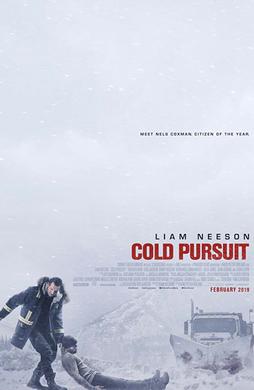
After reading the memoir THE BOYS, from Ron Howard and Clint Howard, I’ve taken a renewed interest in their careers. While scanning Ron’s IMDB listing, I noticed that he directed a film in 2022 called THIRTEEN LIVES. Movies had such strange release patterns in the post-Covid years, and somehow this film had flown completely under my radar. Seeing that the movie was very highly rated and that it was based on what seemed like an incredible true story, I became very interested. So much so, that I started the two and a half hour movie after midnight!
THIRTEEN LIVES is based on a real life “flooded cave” rescue in Thailand in 2018 after 12 boys and their soccer coach become stranded deep inside a cave system when unexpectedly early monsoon rains hit the area. We watch as an international coalition of Thai Navy SEALS, British cave divers, including Rick Stanton (Viggo Mortensen) and John Volanthen (Colin Farrell), and other expert volunteers take part in an extremely urgent and dangerous mission to save the thirteen lives. When it appears that all hope may be lost, the men come up with a risky, experimental plan requiring the expertise of anesthetist and cave diver Harry Harris (Joel Edgerton). As scary as the plan is, everyone agrees it’s the only chance they have…
I mentioned earlier that one of the reasons that THIRTEEN LIVES piqued my interest is the fact that it’s based on a true story. The real world has been full of heartbreaking tragedy this year, and this story seemed like something I really needed to see. On a personal note, 2018 was one of the most difficult years in my life. I don’t remember hearing about this real life drama out of Thailand, so I honestly didn’t know what was going to happen. I’ll give Director Ron Howard a lot of credit for how effectively he captures the seemingly hopeless and terrifying situation over the 18 day period from the time the team was first trapped to the time that the rescue attempt reaches its conclusion. His deliberate pacing doesn’t rush the story, and we can’t help but become invested in the emotions being experienced by the families and the rescue teams. I also enjoyed watching people from all over the world working together and not caring who gets the credit. There was tension at times of course, but the focus was never about ego. It was always about their mission to save those who were trapped. This movie is about regular people who became real heroes. The film captures the psychological cost of that transition as not every person will survive the 18 day journey.
The incredible real-life story of THIRTEEN LIVES is complimented very well by an excellent cast. I’ve been a fan of Viggo Mortensen since he starred in the film THE INDIAN RUNNER in 1991, which happened to co-star my movie hero Charles Bronson. I’ve also been a fan of Colin Farrell since he emerged in what seemed like a concerted effort in the early 2000’s to make him a star. Both men bring their “A” games here in understated and powerful performances. Other actors that stood out to me include Joel Edgerton as the expert who holds the key to the rescue plan, Sahajek Boonthanakit as Governor Narongsak, the man who takes the ultimate responsibility for their mission, and Pattrakorn Tungsupakul, the distraught mother of one of the trapped boys. Howard assembled a great cast that brings the incredible story to life.
I mentioned earlier that I started watching THIRTEEN LIVES after midnight. For a 51 year old man, the fact that I watched the entire film at that time of the night, without falling asleep, says a lot about the way this extraordinary story pulled me in. I highly recommend this powerful film to any person who enjoys movies based on true stories.

